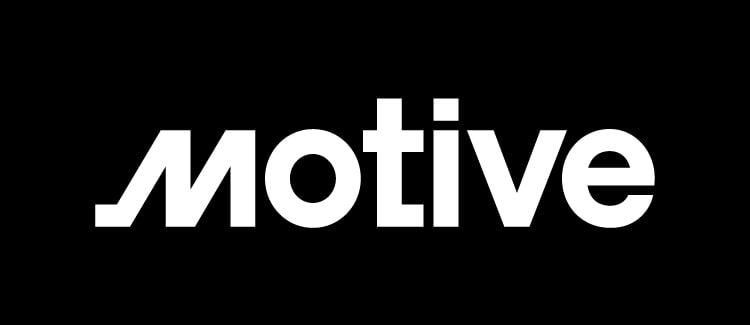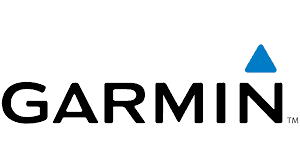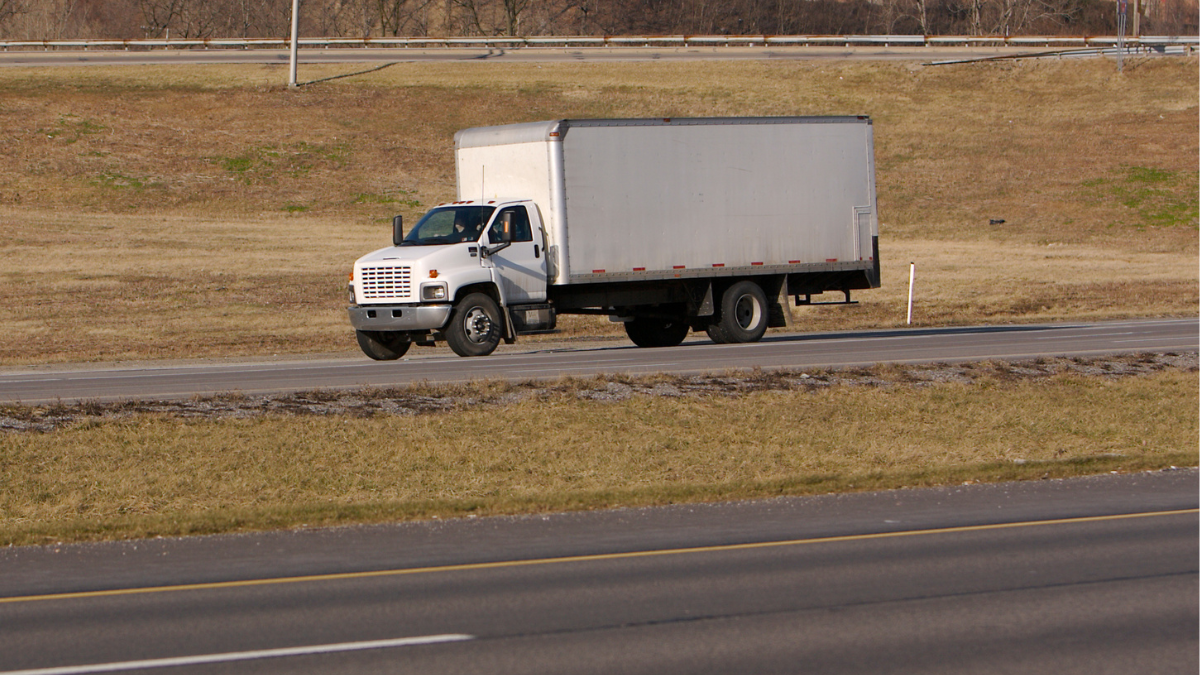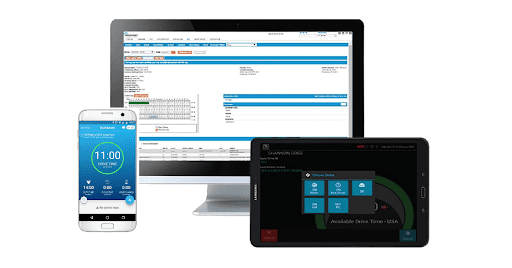For fleet managers and trucking company owners, the digital revolution has brought with it a tidal wave of compliance measures and data management needs.
Considering the vast diversity in the trucking industry, where box trucks reign as the unsung heroes of urban delivery routes and last-mile logistics, selecting the right electronic logging device (ELD, or eLog) system is a pivot toward not just compliance but operational excellence.
Quicklook: Top ELD systems for box trucks
- Best for user-friendly interface: Verizon Connect
- Best for customization: Motive
- Best for scalability: Trimble
- Best for advanced data analytics: Samsara
- Best for simplified route planning: Garmin
Top 5 box truck ELD providers
In this comprehensive guide, we break down the top ELD companies with solutions tailored to the unique needs of box truck operations, ensuring you not only meet regulatory standards but also enhance your fleet’s productivity and safety metrics.
Verizon Connect

Verizon Connect stands out with its user-friendly interface and robust support system. For fleet managers transitioning to ELogs, the initial stages can be the most daunting, and the support system can make all the difference.
Verizon Connect offers an intuitive system that minimizes the learning curve for drivers and managers alike. Additionally, their customer service is renowned for its prompt and helpful response, ensuring that any issues are swiftly addressed.
Best for: User-friendly interface
Benefits:
- Live maps
- Geofencing
- Field service and tracking add-on options
- HOS driver notifications
- Simple dashboard for administrators
- Customer support over the phone or online
- Access webinars and online training to get started
- Use driver smartphones to reduce upfront hardware display screen costs
- DVIR to help forecast maintenance and reduce breakdowns
Disadvantages:
- Pricing not transparent
- Sales process somewhat intimidating for smaller fleets
- Not a fast compliance solution because of the sales process
Pricing: Only provided via customized quote
Motive

For box truck fleets that need a solution tailored to their unique needs, Motive offers a highly customizable eLog system.
With the ability to configure and monitor specific metrics that are critical for box truck operations, Motive eLogs provide detailed insights that enable better decision-making. This level of tailor-made service can lead to more efficient truck usage and cost savings over time.
Best for: Customization
Benefits:
- Reduced fuel wastage
- Vehicle diagnostics
- Reduced liabilities
- Location tracking
- Better route management
- HOS alerts
- Quality customer service
Disadvantages:
- No international integration
- Annotation notes for edits are difficult for some
- Each driver needs a smart device
Pricing: Request a custom quote
Trimble

Trimble’s ELog solution is lauded for its scalable platform, which is an excellent match for growing box truck fleets.
Expansion means integrating more vehicles and drivers into the eLog system seamlessly, and Trimble’s platform allows just that. Fleet managers can easily add new vehicles and drivers, maintaining continuity in HOS management, even as the fleet grows.
Best for: Scalability
Benefits:
- Track vehicles with real-time location data
- Reduce driver error with live tracking and feedback
- IFTA fuel tax data
- Driver vehicle inspection reports (DVIR)
- Fuel use reporting and analysis
- Engine status reports
Disadvantages:
- Expensive upfront hardware costs
- Relatively complicated installation
Pricing: $1,200 upfront for hardware with plans starting at $43 per month
Samsara

Samsara has carved a niche with its advanced data analytics capabilities, going beyond simple compliance to offer actionable insights.
Fleet managers can make informed decisions in real-time, based on a wealth of data collected by the Samsara system. This can be a game-changer for box truck fleets, particularly for those with fluctuating delivery schedules and seasonal demand.
Best for: Advanced data analytics
Benefits
- Real-time GPS tracking
- Routing and dispatching
- Engine diagnostics and fault codes
- Violation alerts and RODS visibility
- Driver behavior reporting
- Fuel tracking
- Optional dashcams
Disadvantages
- Frequent software updates
- Onboard diagnostics (OBD)-only port
Pricing: Customized quote after free demo
Garmin

One distinct advantage of Garmin eLog is its integration with the driver’s GPS, simplifying route planning and device management.
For box truck drivers who often cover new routes and destinations, having their eLog for trucks work directly with their GPS can streamline the entire operation. This also reduces the number of devices drivers need to interact with, enhancing ease of use.
Best for: Simplified route planning
Benefits:
- Reliable name brand
- No monthly subscriptions
- 24/7 customer support
- Automated recording of HOS
Disadvantages:
- No IFTA reporting
- Limited functionality
- Not compatible with OBDII
Pricing: $249.99
The importance of ELDs for box trucks
ELDs are not simply mandates to endure; they present an opportunity for enhancing your business.
For box trucks, which are often the lifeblood of city commerce and often overlooked in discussions around trucking technology, ELDs are key to centralizing data, routing, and ensuring the efficient operation of what could be hundreds of vehicles darting through city streets.
By 2022, ELD compliance became no longer a habitable option but a legal requirement. The deadline to install these devices has passed, and those who gathered their resources and updated their fleets are now reaping the benefits. With real-time data on driver hours, GPS tracking, and automated logbook entries, the days of mounting paperwork and sluggish manual recording are becoming a thing of the past.
Choosing the right ELD for your box truck fleet is more than a box-ticking exercise; it’s fundamental to staying competitive and compliant both on the road and in the marketplace.
Strategies for choosing the right ELD for a box truck fleet
Consider the box truck’s unique environment
Box trucks operate in a starkly different environment from long-haul vehicles. In the confines of city streets, frequent stops, complex traffic patterns, and tight delivery schedules are the norm, making user-friendly systems a must.
A good ELD device for trucks should seamlessly integrate with these daily challenges, providing drivers with tools that assist in quick and safe navigation.
Integration with fleet management systems
The best ELD for box trucks isn’t an isolated product but an integral part of a larger fleet management system (FMS).
Look for ELDs that easily plug into existing FMS software, providing a holistic view of your fleet’s activity and performance.
Ease of compliance reporting
Compliance is still a driving force in ELD adoption, and the system you choose should not complicate but streamline your reporting.
Quick and easy access to log data, exceptions, and violations is vital for a quick response to regulatory requests.
Longevity and upgradability
Investing in an ELD is also investing in the future. Opt for systems that offer upgradability, either through software enhancements or hardware add-ons, to keep pace with changing regulations and technological advances.
The impact of ELDs on box truck operations
An investment in the right ELD system is not just dollars saved from fines avoided; it’s a commitment to running an efficient and operationally sound business.
With the accurate and automatic tracking of driver hours, ELDs can help prevent violations and the associated penalties. They also contribute to reducing the overall fatigue of drivers, a critical parameter for a vehicle type that operates in dense, stressful, and potentially dangerous city environments.
Furthermore, the solid data that ELDs offer can revolutionize fleet management, aiding in route optimization to cut down on idle time and unnecessary mileage, ensuring timely and cost-efficient deliveries.
A well-chosen ELD system could be the differentiator that makes your box truck fleet not just compliant, but a model of integrated and insightful logistics management in the heart of urban commerce.
The road ahead for box trucks and ELD technology
Staying current with ELD technology has moved from being an advantage to a necessity for the box truck fleet.
The box truck’s unique role in modern logistics demands an ELD system that is sophisticated yet pragmatic, one that merges seamlessly into operations rather than disrupts them.
The future of box truck operations is digital and data-driven, and in the driver’s seat of this transformation is the electronic logging device. It’s time to accelerate into this new era, not just to keep pace with regulatory standards, but to leap ahead with optimal efficiency and command over your fleet.
FAQ
An eLog (electronic log) in trucking is a digital record of a commercial vehicle driver’s hours of service, replacing traditional paper logbooks. It automatically tracks driving time, on-duty time, and rest periods to ensure compliance with hours of service regulations.
The cost of an electronic log device can vary widely, ranging from around $200 to over $1,000 per unit, depending on the features, subscription plans, and additional services offered by the vendor. Ongoing monthly fees for data plans and compliance services may also be required.
A truck qualifies as eLog exempt if it is used for certain specific operations, such as driving within a 100 air-mile radius of the driver’s work reporting location and returning to that location at the end of each shift. Additionally, vehicles older than model year 2000 are generally exempt from the electronic logging device mandate.


